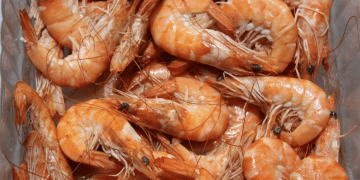In response to recent concerns regarding the spread of the White Spot Virus, Colombia has implemented new restrictions on shrimp imports from Ecuador. This decision comes as a precautionary measure to safeguard the health of Colombia’s shrimp industry and to prevent the potential outbreak of the virus within its domestic aquaculture operations.
The White Spot Virus, known for causing significant losses in shrimp farms due to its detrimental effects on shrimp health, has prompted Colombian authorities to review and adjust import regulations. The restrictions specifically target shrimp shipments originating from Ecuador, a major exporter of shrimp to Colombia, as the virus has been detected in Ecuadorian shrimp farms.
Colombian officials are working closely with Ecuadorian counterparts to address the issue and to ensure that any necessary steps are taken to mitigate the risk of virus transmission. The Colombian government has emphasized that these measures are intended to be temporary and will be reassessed based on future developments and the effectiveness of ongoing control efforts.
This action underscores the importance of stringent biosecurity measures in the seafood industry and reflects Colombia’s commitment to maintaining the health and sustainability of its aquaculture sector. The restrictions are expected to impact trade dynamics between the two countries, with potential implications for shrimp supply chains and market prices.
Both countries are engaged in discussions to find a resolution and to prevent further disruptions in shrimp trade. The situation remains fluid, and stakeholders in the seafood industry are closely monitoring developments to adapt to any changes in import regulations.
Stay current with supply chain report news at The Supply Chain Report. For international trade resources, visit ADAMftd.com.
#ColombiaEcuadorShrimp #WhiteSpotVirus #ShrimpImportRestrictions #SeafoodBiosecurity #AquacultureHealth #EcuadorShrimpTrade #ColombiaShrimpIndustry #ShrimpSupplyChain #VirusPrevention #TradeImpact #SeafoodIndustryUpdate #ColombiaEcuadorTrade #AquacultureSustainability















